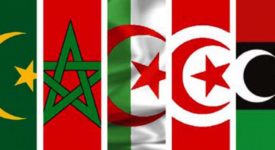The European Commission announced on Thursday the launch of the first part of its EU-Morocco Action Program 2013, destined to support Morocco’s economic and social development projects.
The €110 million worth program, which reflects the EU’s commitment for the economic and social development in Morocco and for the reduction of social inequalities, will support the establishment of a universal health coverage system, and an agricultural development policy in favour of small family farming.
Both initiatives also reflect the willingness of the EU to support over the long term, the reforms undertaken by Morocco and to help ensure this process success and sustainability.
“Our support for these two major areas of socio-economic reforms allows us to contribute to a more inclusive growth in line with the commitments made by the EU to its Moroccan partner in respect of the new approach of the European Neighbourhood Policy,” said Štefan Füle, European Commissioner for Enlargement and European Neighbourhood Policy.
“These actions are also designed to meet the needs of the Moroccan population with a redistribution of the results of the growth in Morocco,” he said.
The program supporting the Basic Medical Coverage reform, initiated by Morocco to put into practice the principle of universal access to health care, amounts to €50 million. It will help the North African country generalize the Plan for Medical Assistance for the Economically Disadvantaged (RAMED), integrate persons eligible but insured by other means into the system of Compulsory Medical Insurance, and finally, integrate into the mechanism basic medical coverage segments of the Moroccan population that do not benefit from it yet.
The program will also assist the Government in implementing an effective technical and financial management of the system of medical care and improving the healthcare service to enable the health sector cope with growing demand.
The programme will be the third phase of EU support (started in 2002) to the ambitious project of establishing a universal health insurance in Morocco. The increased EU support has enabled the start of the pilot phase of the basic medical coverage for the poorest and the implementation of the components of the system of medical coverage.
RAMED which was officially launched in March 2012 was expected to benefit 8.5 million underprivileged people (28% of the Moroccan population), including 4 million poor inhabitants and 4.5 people from the vulnerable social strata, in addition to inmates, homeless persons and orphans. The new medical care system which mobilized three billion Dirhams for the year 2012 is aimed at improving access to health care, in accordance with the provisions of the new Moroccan constitution.
The program for support to the agricultural sector policy, worth €60 million, will continue to support initiatives taken by the Moroccan authorities to allow small farming agriculture to benefit from support measures with the aim of increasing productivity and creating jobs in priority agriculture sectors, improving capacities of processing, development and marketing and thus improving the incomes of small farmers.
The program will finally ensure the effective participation of small farmers in the definition of objectives and activities implemented in the framework of the Moroccan strategy for agricultural development, the Green Morocco Plan.
The program follows up on previous EU support which helped make significant improvements in production targets for certain sectors, agricultural diversification and improving the incomes of small farmers by increasing the number of working days.
The agricultural sector contributes 19% of the GNP, with 15% from agriculture and 4% from agro-industry. This sector employs more than 4 million rural inhabitants, and has created approximately 100,000 jobs in the agro-industry sector.
This sector plays a substantial role in the macroeconomic balance of the country. It also plays an important social role as 80% of the 14 million rural inhabitants depend on revenues from the agricultural sector.
Article Categories:
INSTITUTIONS & POLICY-MAKING






